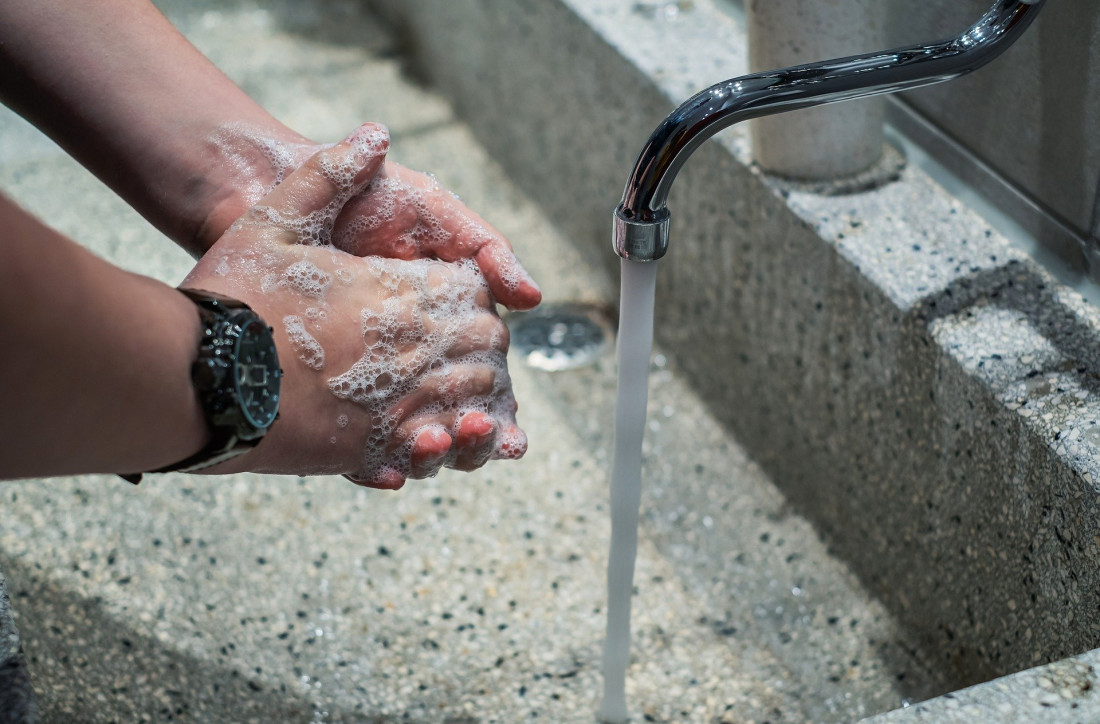The $635 billion soap industry has a dirty little secret. Their products are far from perfect, and not very eco-friendly, as their manufacture uses a variety of petrochemical products and fossil fuels that give them a large environmental impact. Despite this, they aren’t always very good at cleaning, especially for those who live in regions with hard water. They also aren’t very effective in washing with cold water, as anyone who has tried to rinse out shampoo without warm water will tell you.
Worse still, in trying to make soap and detergents more effective, other chemicals products are often added which can have a negative impact if the skin suffers a bad reaction, or is simply washed away, further polluting water systems.
However that may all change, as a research team has developed an improved soap that they claim performs better in cold and hard water, requires fewer chemical additives and is much better for the environment as its feedstock is based on soybeans, coconuts and corn.
As the scientific journal Science Daily reports, “Funded by the U.S. Department of Energy, researchers from the Catalysis Center for Energy Innovation [have] developed a new chemical process to combine fatty acids from soybeans or coconut and sugar-derived rings from corn to make a renewable soap molecule called Oleo-Furan-Surfactant (OFS). They found that OFS worked well in cold water where conventional soaps become cloudy and gooey rendering them unusable. Additionally, OFS soaps were shown to form soap particles (called micelles) necessary for cleaning applications at low concentrations, which significantly reduces the environmental impact on rivers and lakes.”
The report continues by stating how, “The new renewable OFS soap was also engineered to work in extremely hard water conditions. For many locations around the world, minerals in the water bind with conventional soaps and turn them into solid goo. To combat this problem, most existing soaps and detergents add an array of additional chemicals, called chelants, to grab these minerals and prevent them from interfering with soap molecules. This problem has led to a long list of extra chemical ingredients in most conventional cleaning products, many of which are harmful to the environment.”
However, the new OFS soap avoids the need to use added chelants, because its natural ingredients do not bind as strongly with the minerals in hard water, as they do with conventional soap. As a result, the research team has found that the OFS molecules could form soap particles (micelles) even when hard water conditions were increased 100-fold.
The research team explained their discovery in more detail when publishing their results in the American Chemical Society journal Central Science. Here they outlined their research process as follows:
“An important advance in fluid surface control was the amphiphilic surfactant composed of coupled molecular structures (i.e., hydrophilic and hydrophobic) to reduce surface tension between two distinct fluid phases. However, implementation of simple surfactants has been hindered by the broad range of applications in water containing alkaline earth metals (i.e., hard water), which disrupt surfactant function and require extensive use of undesirable and expensive chelating additives. Here we show that sugar-derived furans can be linked with triglyceride-derived fatty acid chains via Friedel–Crafts acylation within single layer (SPP) zeolite catalysts. These alkylfuran surfactants independently suppress the effects of hard water while simultaneously permitting broad tunability of size, structure, and function, which can be optimized for superior capability for forming micelles and solubilizing in water.”
Co-author of the study, and associate professor of chemical engineering and materials science at the University of Minnesota, Paul Dauenhauer, described the breakthrough as game changing for the soap and detergent industry. Stating that, “Our team created a soap molecule made from natural products, like soybeans, coconut and corn, that works better than regular soaps and is better for the environment. This research could have a major impact on the multibillion-dollar cleaning products industry.”
Dauenhauer’s colleague, chemical engineering and materials science graduate student, Kristeen Joseph agrees that the discovery will change the industry, saying, “The impact of OFS soaps will be greater than their detergent performance. [Because] OFS is made from straight carbon chains derived from soybeans or coconut which can readily biodegrade. These really are the perfect soap molecules.”
A greener cleaner? A better soap? That sounds like something that will interest many surfactant producers.
So given that the conventional soap and detergent industry is currently producing a less effective product from an unsustainable resource, isn’t it time for all cleaning product manufacturers to look for fossil fuel alternatives?

